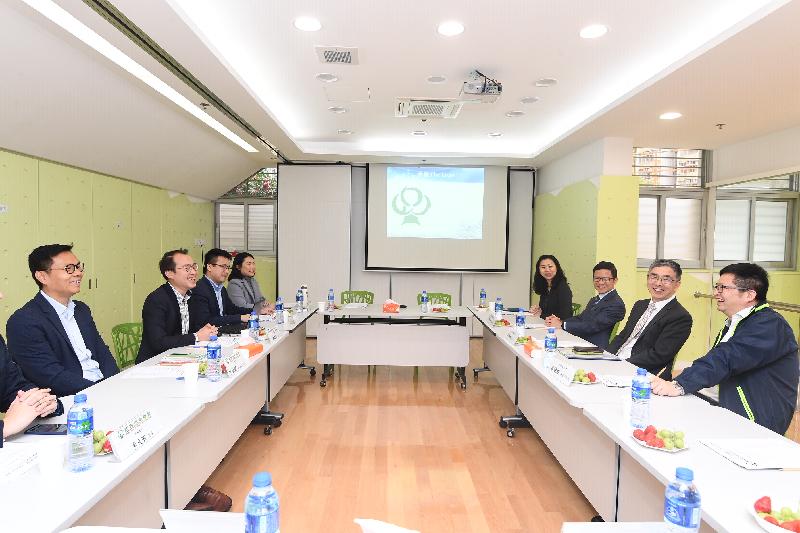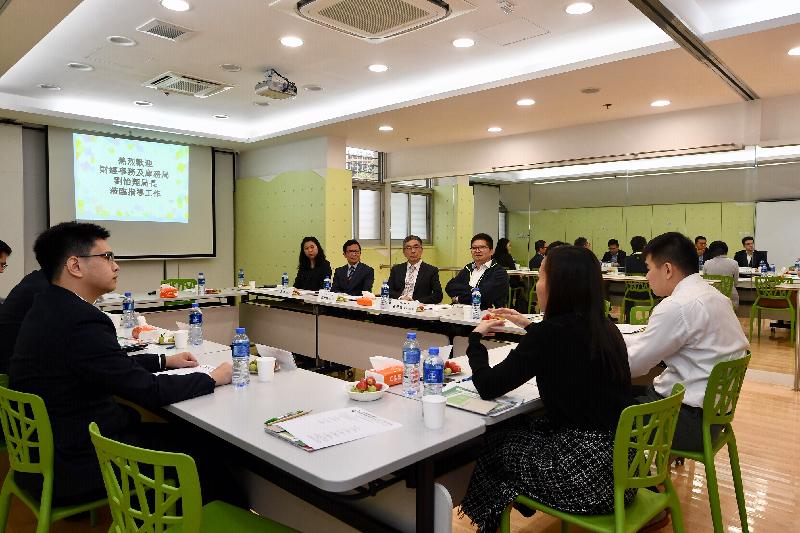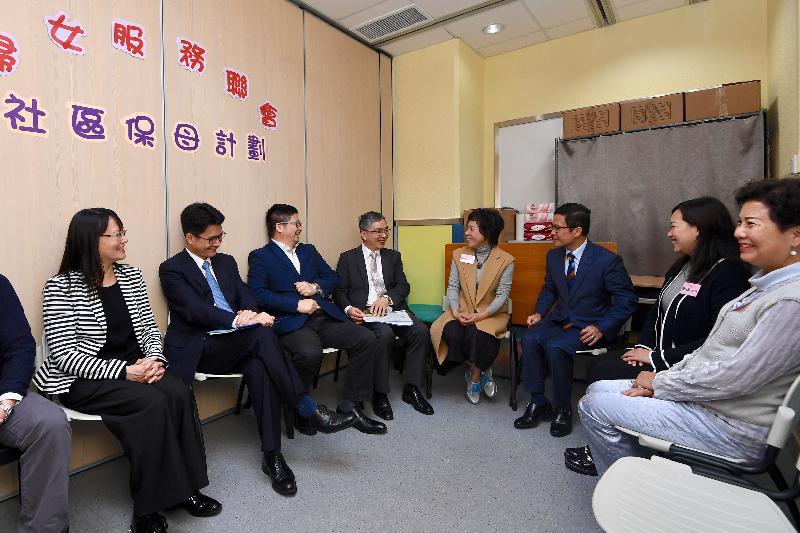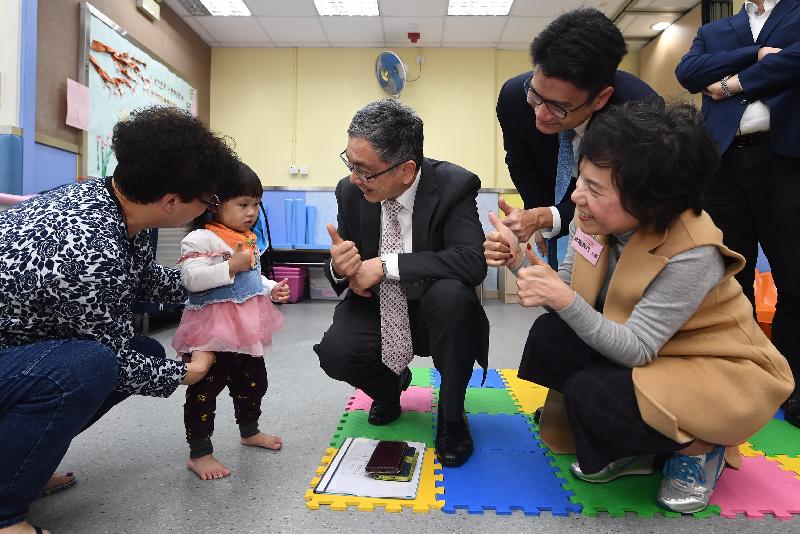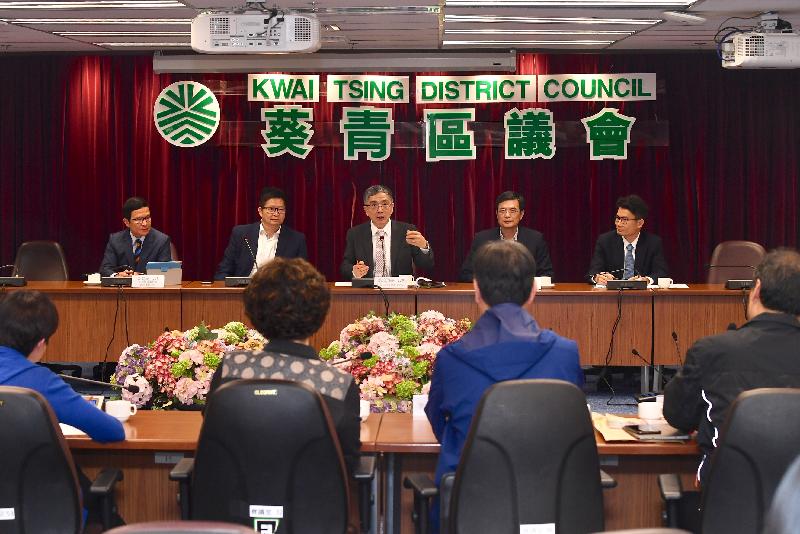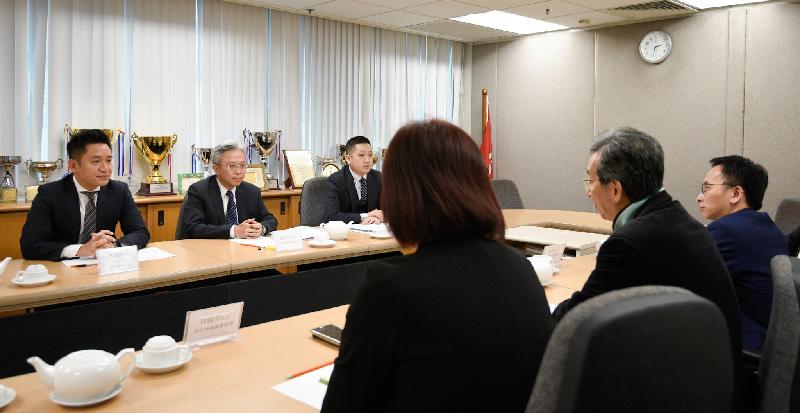Speech by FS at MOU Signing Ceremony between Tencent Finance Academy and HKU (English only)
Following is the speech by the Financial Secretary, Mr Paul Chan, at the MOU Signing Ceremony between Tencent Finance Academy and the University of Hong Kong today (March 6):
Paul (Provost and Deputy Vice-Chancellor of the University of Hong Kong, Professor Paul Tam), Jim (Vice President of Tencent; President of Tencent Financial Technology and Dean of Tencent Finance Academy, Mr Jim Lai ), Christopher (Dean of Engineering of the University of Hong Kong, Professor Christopher Chao),professors, students, distinguished guests, ladies and gentlemen,
Good evening.
I am delighted to be here with you tonight to witness this welcome agreement – this cross-boundary partnership between Tencent, China’s leading tech company, and the University of Hong Kong, Asia’s preeminent university.
More specifically, the agreement connects Tencent Finance Academy and the University of Hong Kong’s Department of Computer Science in the Faculty of Engineering, enabling them to join forces with each other as they march into a future in which fintech (financial technology) will clearly play a significant role.
In transcending institutions and boundaries, this business-education partnership is a dynamic model of what Hong Kong needs if we are to ride the global wave of innovation and technology.
The HKSAR Government is very determined to ride this wave and leverage it to reach new heights. In my Budget Speech announced last week, I allocated a further $45 billion to building Hong Kong into an innovation and technology hub. And fintech is among our priority areas for good reason.
Hong Kong is blessed with a highly developed information and communications technology sector. Our financial regulatory regime is transparent and mature, and we have long embraced the free flow of talent, capital and information. Our robust intellectual property regime is buttressed by the rule of law, and our post-secondary educational sector is innovative on a global scale.
Indeed, along with the University of Hong Kong, five other Hong Kong universities have also rolled out fintech undergraduate and postgraduate programmes.
The Government is committed to enabling their efforts. Our Study Subsidy Scheme for Designated Professionals, for example, now covers self-financing, fintech-related undergraduate programmes. And to ensure that new graduates gain work experience and international exposure, the HKMA (Hong Kong Monetary Authority)’s Fintech Career Accelerator Scheme provides fintech-related internships. Cyberport also sponsors top students to take fintech training camps in the Silicon Valley and Chicago.
Moreover, we welcome fintech talent from the Mainland and from all over the world through our Talent List, which fast-tracks immigration requirements for a variety of in-demand expertise, including of course, experienced fintech professionals.
It’s the same with our Technology Talent Admission Scheme, which is open to tenants and incubatees of the Hong Kong Science Park and Cyberport engaged in fintech, and other areas.
I’m pleased to note that Tencent supported last year’s Hong Kong Fintech Week by hosting an informative visit to their headquarters in Shenzhen. And through WeChat Pay HK, Tencent helped enable cross-boundary payments, making our Mainland travel more convenient.
As for the University of Hong Kong, in co-operation with Cyberport and other industry players, it launched Asia’s first Fintech Massive Open Online Course last May. I’m told that more than 22 000 people, from Hong Kong and from all over the world enrolled in the course. And in the coming academic year, the multidisciplinary Bachelor of Arts and Sciences in Financial Technology programme will commence to nurture financial technologists and entrepreneurs with essential knowledge in both finance and technology.
And now we have the partnership between Tencent and the University of Hong Kong, an alliance certain to expand fintech development in Hong Kong, in Shenzhen and, indeed, throughout the Greater Bay Area.
In connecting we create opportunity, whether between Tencent and the University of Hong Kong, or through the Greater Bay Area itself. And that, ladies and gentlemen, is the clear catalyst for mutual success. Something I’m confident this partnership will bring about in the fintech area and for all of us.
Thank you.
